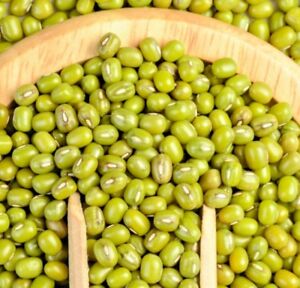All about Jowar(ज्वार).
Jowar(ज्वार) is a popular Indian crop belonging to the grass family, Gramineae. It is similar in appearance to corn. It grows anywhere between 2 - 8ft tall. It has strong roots which extend up to 2.5mtrs below ground. After wheat, the maximum amount of land cultivated in India is used for growing Jowar(ज्वार). It is grown in warm areas and is used as food as well as fodder. It is a highly nutritious crop and is recommended as feed to cattle as well.
It is the 5th most important cereal crop grown in the world. It is cultivated in areas that have regur soil as it needs a clayey ground to get properly yield. It is extremely resistant to drought. It is mainly a rain-fed crop grown through broadcasting and needs anywhere between 30cm to 100cm of rain to grow properly. In India, it is very popular in Maharashtra, Andhra Pradesh, Tamil Nadu, and Karnataka.
Africa is the largest producer of Jowar(ज्वार) in the world.
Organic varieties of Jowar(ज्वार) are also available and very popular. Organic farming involves a system of production in which natural fertilizers are used and there is no use of toxic, pesticides, which pollute the harvest and the ground. Organic Jowar(ज्वार) has gluten-free, easy to digest and provides more energy for the calories consumed. It has a plain neutral taste and is known to absorb flavors. It might have a slightly sweet taste.
 |
Jowar(ज्वार). |
Usage of Jowar(ज्वार)
Jowar(ज्वार) is grown mainly as a grain for consumption and forage with many industrial uses as well.
The seed of Jowar(ज्वार) contains 61-68 percent starch, 7.8-16.7 percent protein, and 1.7-6.5 percent fat, is used in the production of flour, groats, alcohol, and starch. The stems of Jowar(ज्वार) contain sugar and are used in the production of molasses (sorghum syrup).
Jowar(ज्वार) kernels can be steamed and boiled. It is also used for making soups and stews or ground into a flour that can be used as a substitute for wheat flour in baked goods, pancakes or chapatis. It may be cooked as a breakfast porridge. The Jowar(ज्वार flour can be mixed with others to make multigrain flour. Popped over the fire or roasted Jowar(ज्वार kernels are eaten as a snack with seasoning.
Jowar(ज्वार) is also used for feeding cattle.
Nutritional Benefits of Jowar(ज्वार)
1. Jowar(ज्वार) is a high protein grain.
2. It is a cholesterol-free source with a variety of essential nutrients, including dietary fiber, iron, phosphorus, and thiamine.
3. It is a great substitute for people with wheat allergies or celiac disease.
4. It keeps bones and teeth strong by providing energy to the body.
5. It is a good source of vitamin B.
Caution: The young plants of many species are poisonous. Jowar might contain tannins that prevent the body from absorbing the nutrients. Hence it is advised to remove to seed of Jowar(ज्वार) coating before consuming and eat only the inside whitish kernel of Jowar(ज्वार).
 |
Nutritional Benefits of Jowar(ज्वार) |
Related Searches for Jowar(ज्वार) :
jowar benefits for skin, jowar vs wheat, jowar nutrition, jowar side effects, jowar recipes, benefits of jowar in weight loss, jowar in tamil, jowar vs bajra.
Note : If you like our post please don't forget to to follow us to get regular updates on the new recipes which we publish and share it with your friends and family.
If you want some specific Indian recipes be publish on this blog kindly mail me at harsheelair@gmail.com






0 Comments
If you like this blog than please comment and help us to improve.